Mediatek made the MT7925 WiFi 7 adapter available about three months ago, about the same time as the Qualcomm NCM865 and, after seeing that the Linux developers have integrated it into the newer kernels, with the promise of MLO in the very near future, I had to get my hands on one.
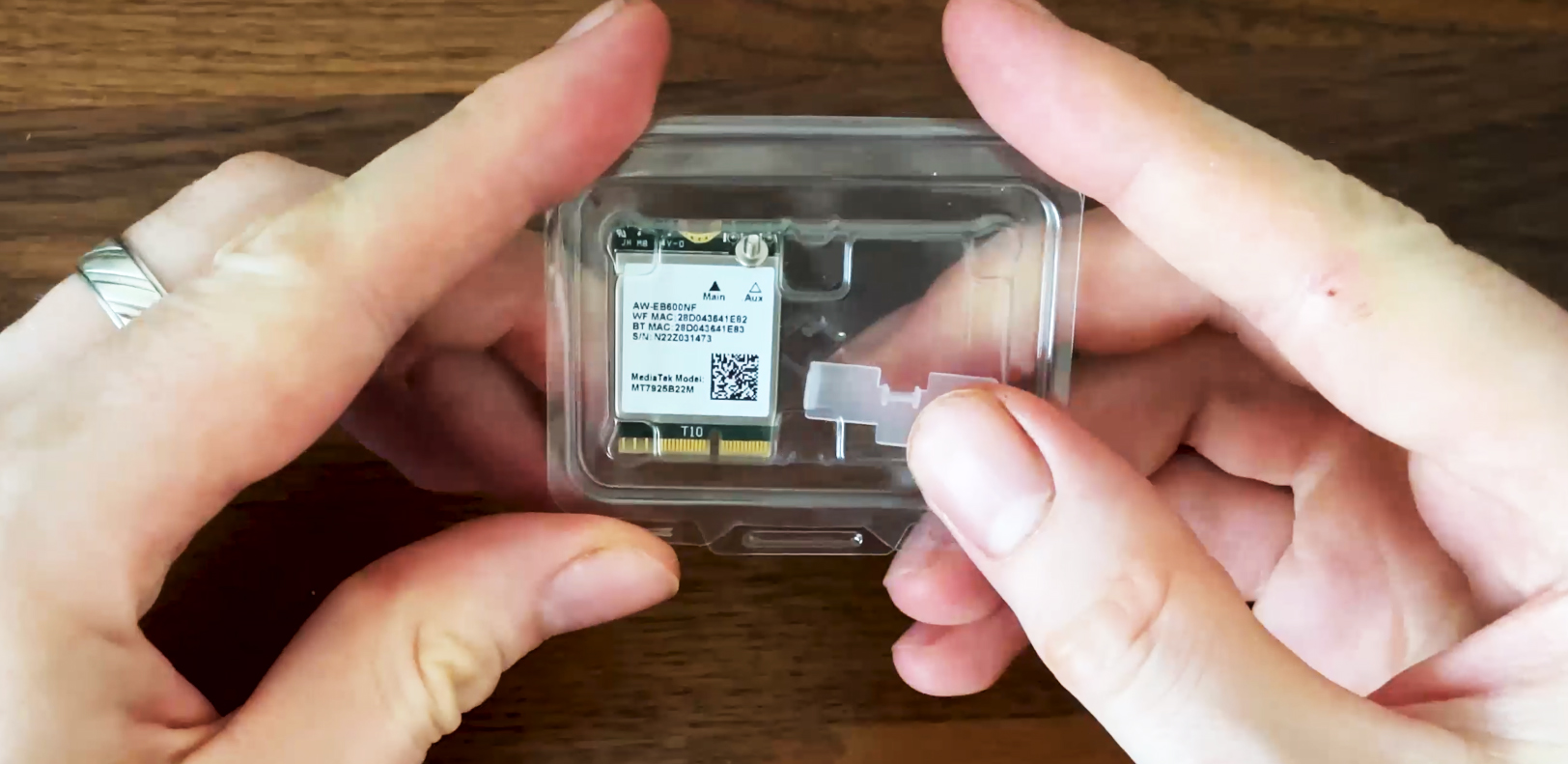
As you will see, things still need some time, so let’s have a very brief talk about what has improved in the last few months from the Windows and Linux side. Windows has hinted that it may add support for MLO with its 24h2 update.
It’s not fully confirmed, but there is a high chance that’s when the users will get it. I couldn’t wait another one or two months and I already got the beta version through the insider program and I did check if MLO was available while using both the Qualcomm WiFi 7 adapter and the Mediatek one.
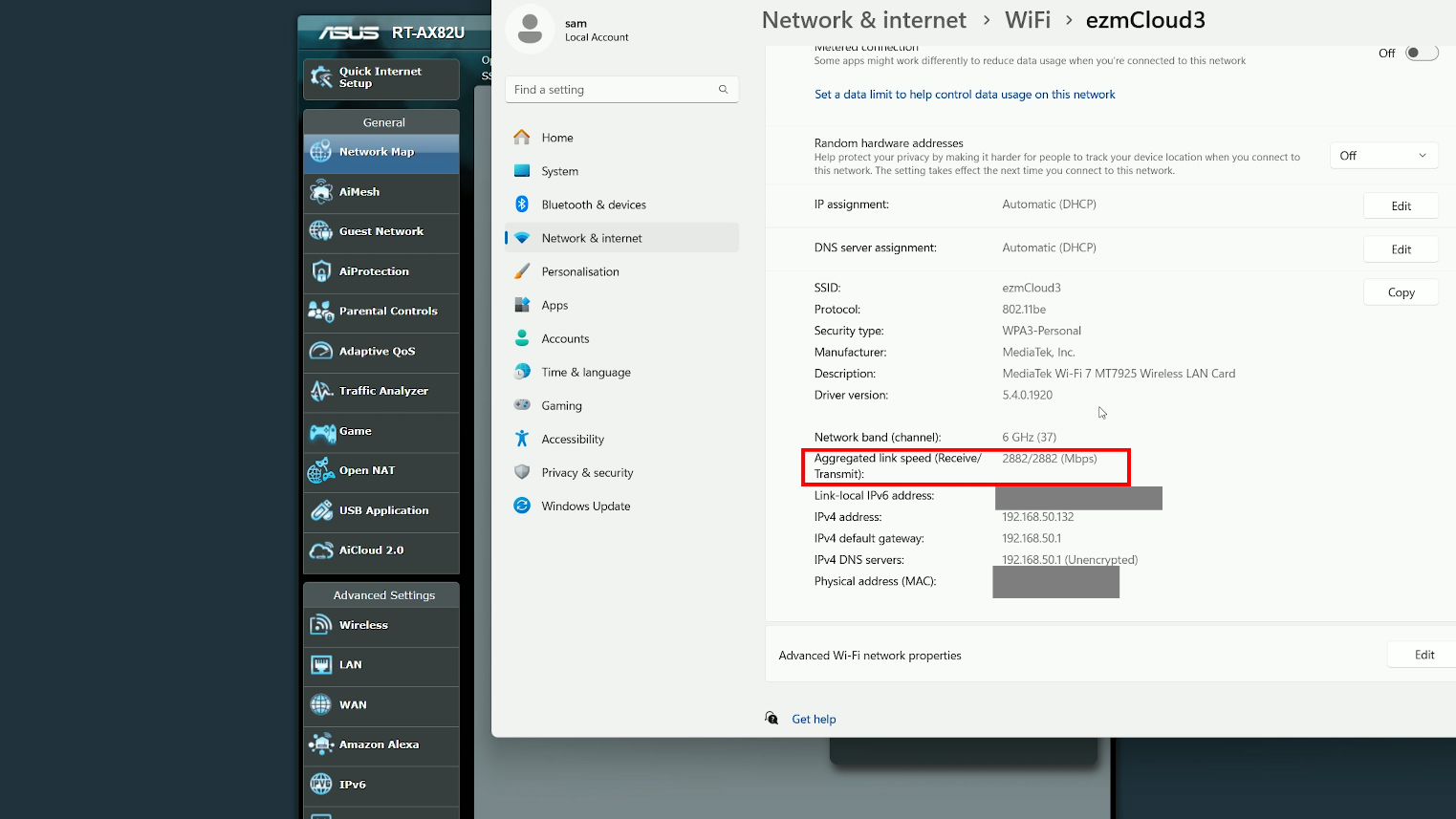
From what I could gather, the band aggregation is detected, but nothing actually came out of it. The throughput is actually lower in the case of the Xiaomi BE7000. As for Linux, they also have made available an early beta-stage version of the 6.11 update, the latest being the rc3 and I had lots of trouble with it, failing to get a stable performance. So, on an AMD PC, I had to revert to the stable version 6.10, while on an Intel PC, I could get a somewhat stable performance using the 6.11-rc1 version, but only with Intel and Qualcomm adapters.
The conclusion is that we still haven’t made any tangible progress and MLO is as useful as it was almost a year ago. That is, unless you get one of those expensive phones which seem to be among the few that can use this function. That being said, the MT7925 adapter is M.2, just like the Intel BE200 and the MSI Herald-BE-NCM865, but the card that I bought did not come with the PCIe adapter, so I borrowed the one from Qualcomm.
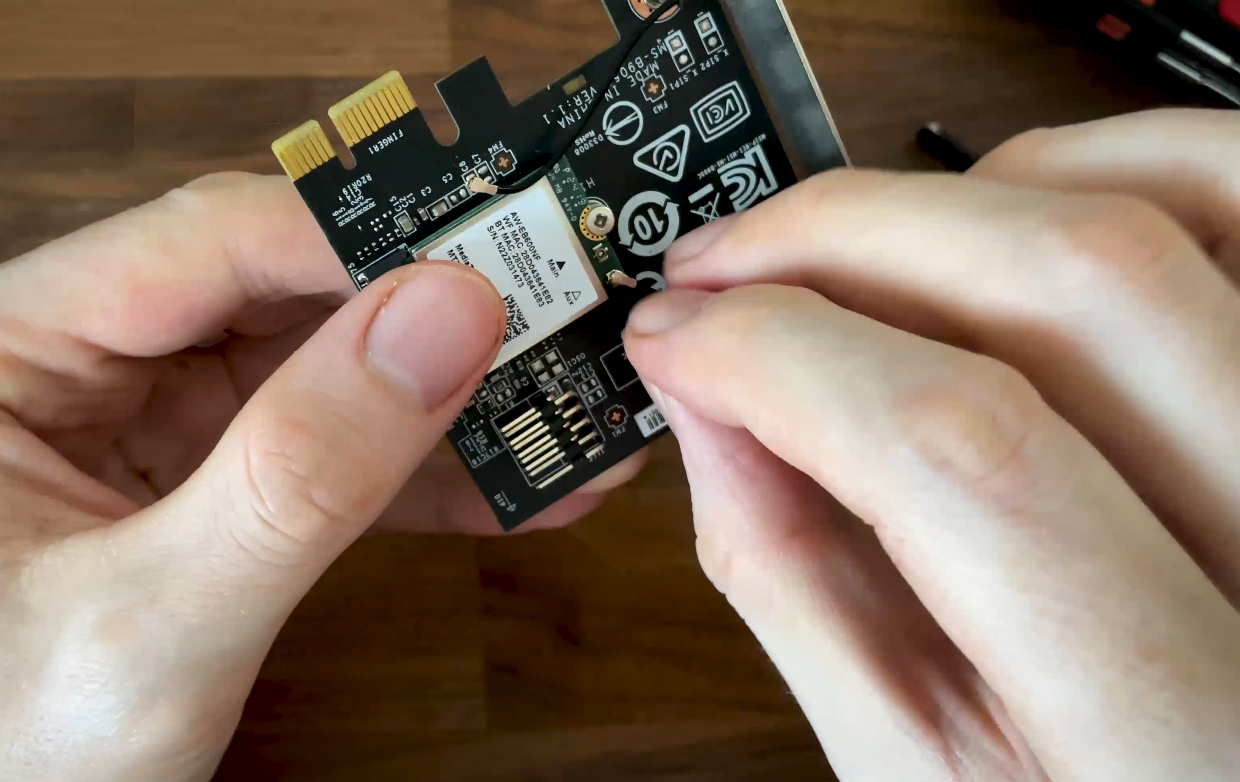
It did work fine, so these adapters seem to be brand agnostic. In terms of features, it does have support for the three radio bands, but it’s only 2×2 MIMO. Additionally, it can work in Station, AP, monitor and P2P modes, and it does support 4K-QAM. One shortcoming that I found when compared to the BE200 and the QCN NCM865 is that while these two support 360MHz channel bandwidth, the Mediatek WiFi 7 adapter only goes up to 160MHz which is a bit of a shame.
But it does support MLO, right? Indeed it does, as well as MU-MIMO and OFDMA. Also, let’s not forget the support for Bluetooth v5.4. Now let’s get to the testing part. I started with the AMD system which is newer and I have included the specs here to get an idea what we’re dealing with. Intel still refuses to support it even now which is a very naught move, but thankfully, we do now have some alternatives. I installed the Mediatek WiFi 7 adapter and then I waited until it detected the 6GHz network.
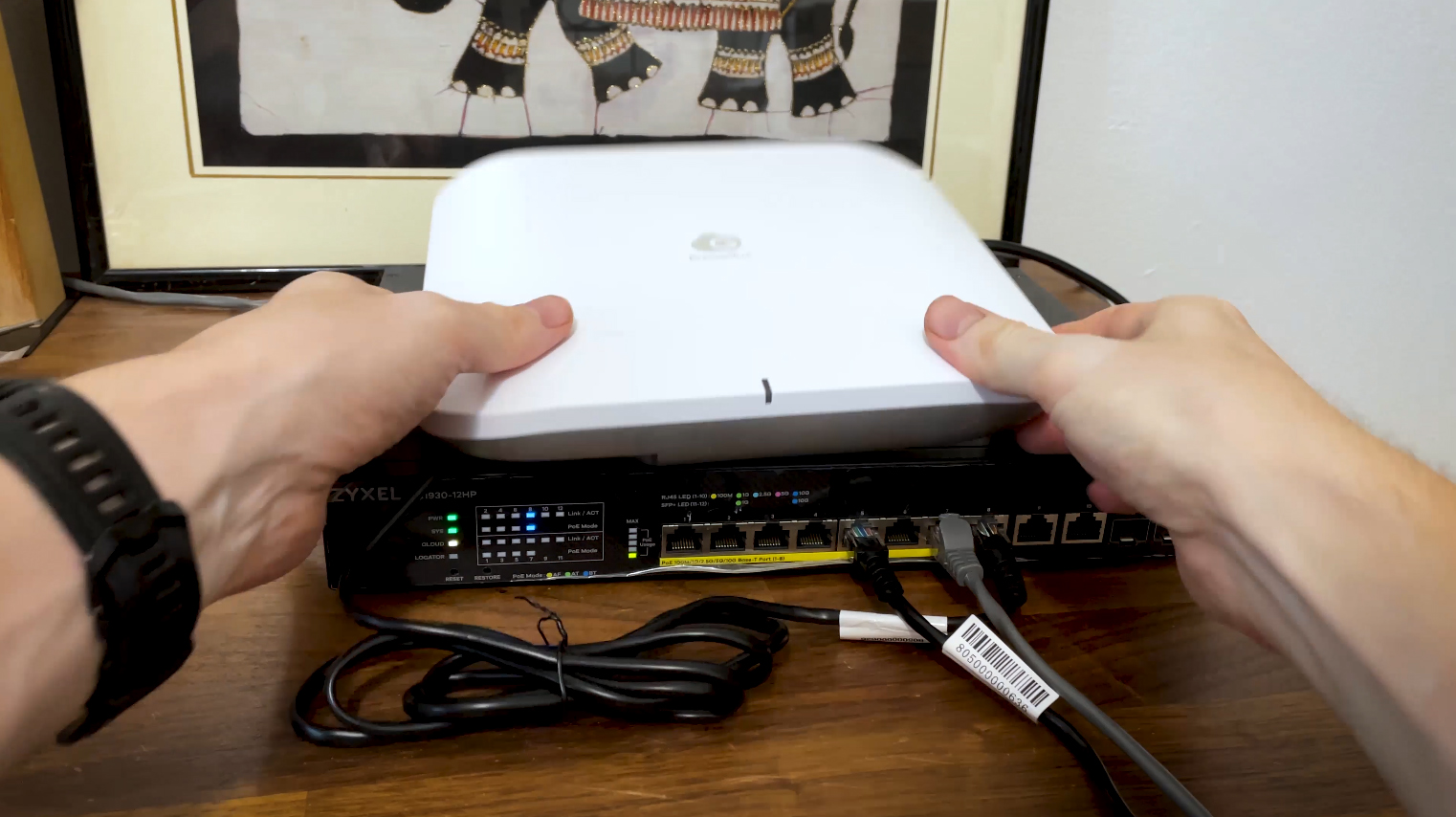
Let’s have a talk about the access points that I used. I relied on the EnGenius ECW536 because it’s the only WiFi 7 access point that I know for sure supports MLO and I powered it up using a Zyxel XS1930 switch that has multiple 10GbE ports. As for the server client, it’s an SBC with a 10GbE NIC, so the client device can stretch as far as it wants, there are no actual limits to how fast it can get. Well, there’s the 10GbE limit, but I look forward to seeing a wireless device reach it.
As you can see, the Windows OS uses the Mediatek adapter and it has connected to the 6GHz radio band. I did have to install the driver separately, but that’s to be expected when using Windows 11. Now let’s see the throughput upstream and downstream.
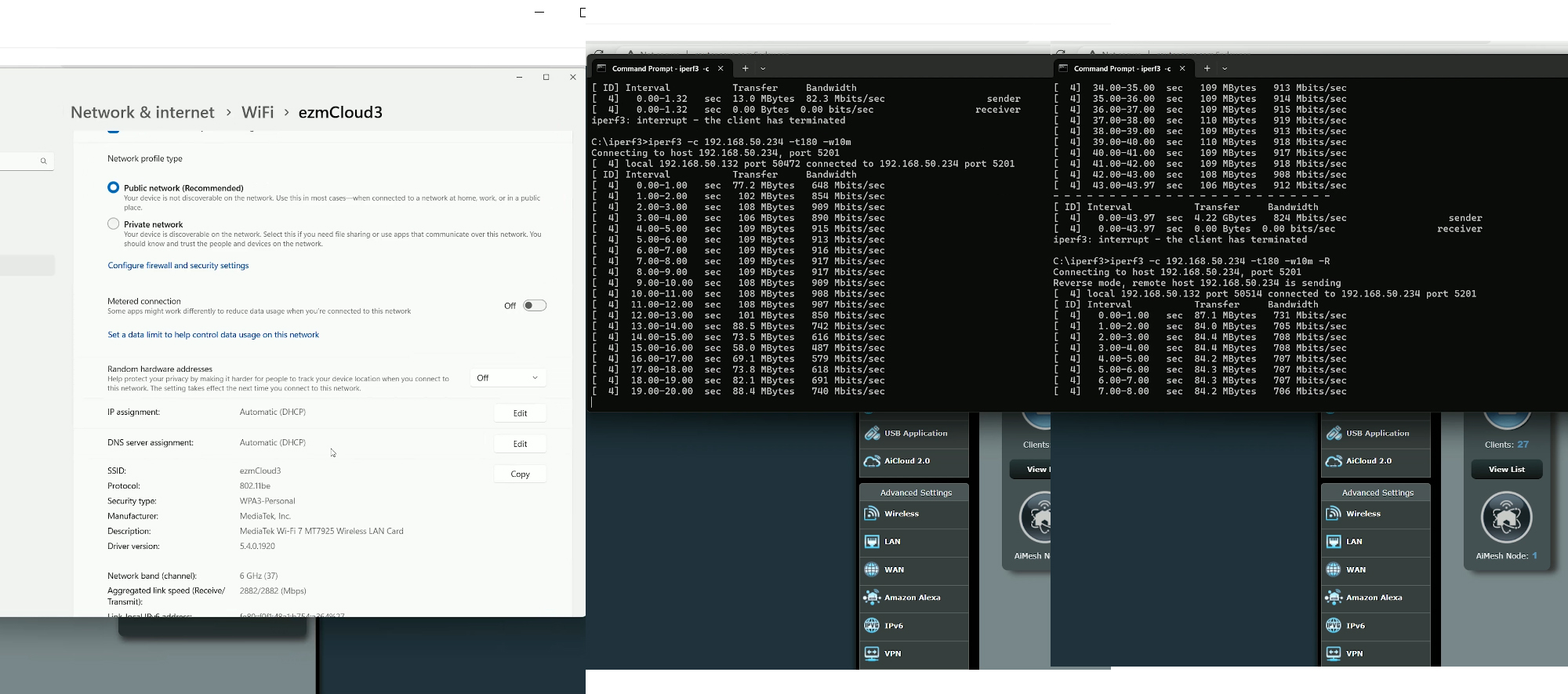
That’s uh, very underwhelming. Let’s see if MLO is at least detected even if clearly not functional. It says that there are three colocated access points, two 5GHz and one 2.4GHz.\
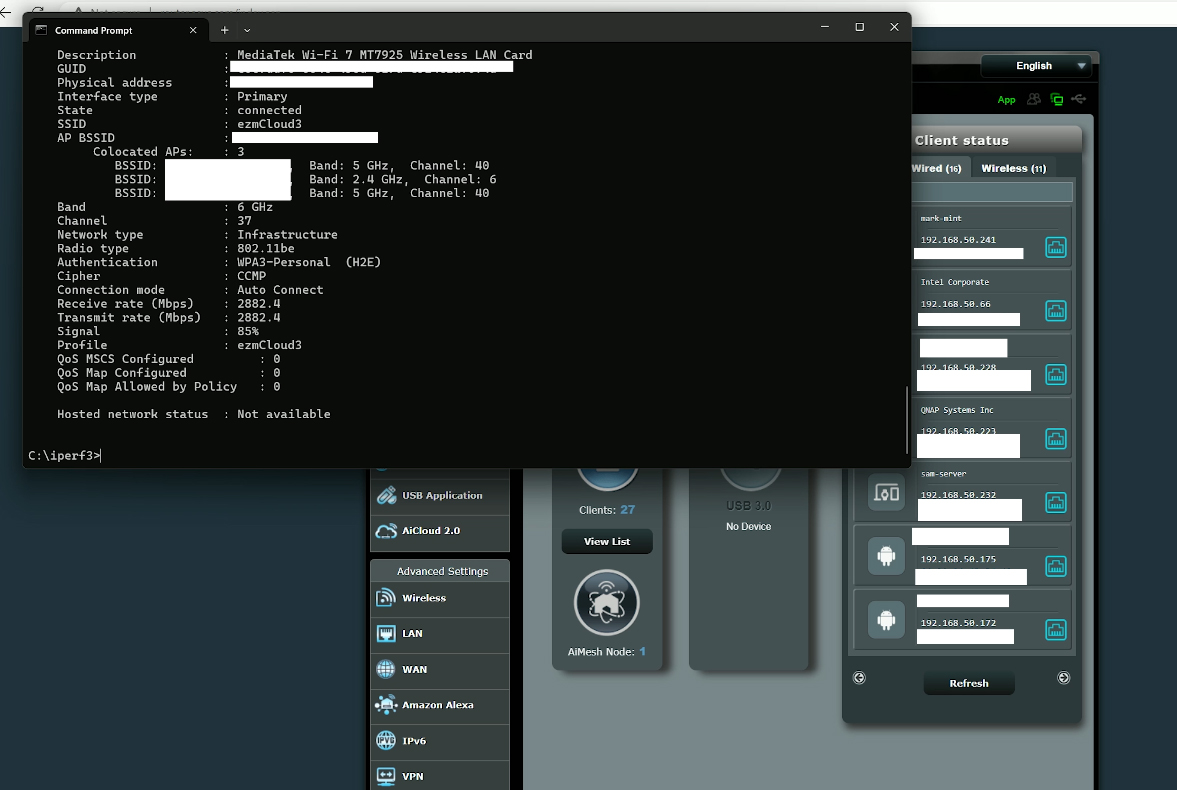
That can’t be right. I went to the EnGenius Cloud platform and initially tried to change the channel for the 6GHz network and it refused to do so. Yeah, it did not want to update the channel. Then, I checked which SSIDs had MLO enabled.
As expected, it was just for the 5GHz and the 6GHz bands.
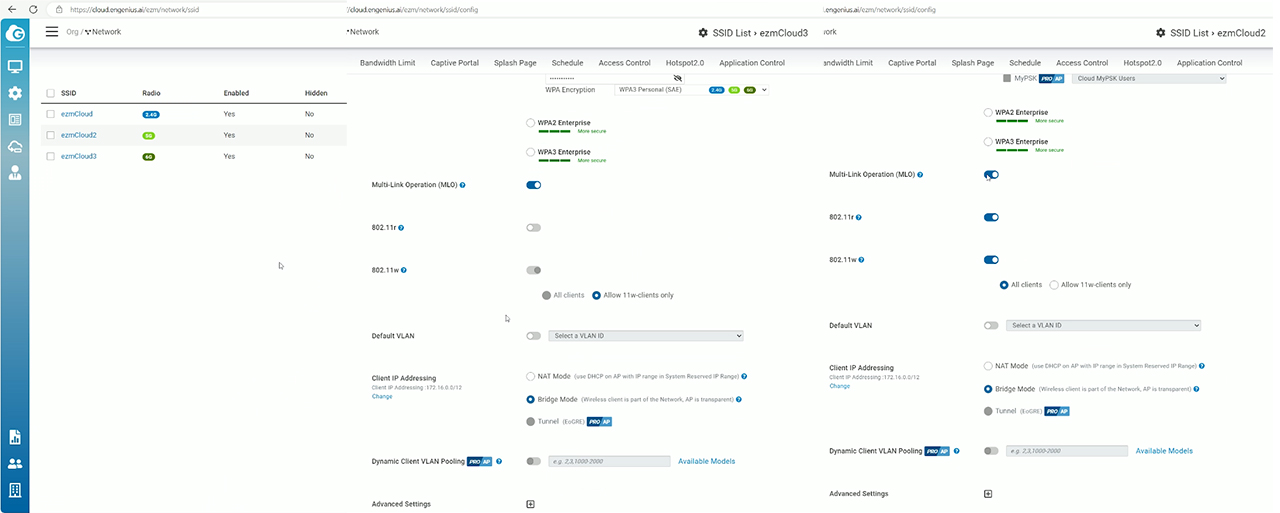
So, either EnGenius has some serious bugs in the software or Microsoft with its beta version or both because why not. Then again, the Mediatek adapter could also be buggy. I wasn’t sure, so I used another WiFi 7 access point, the U7 Pro which still doesn’t have support for MLO. Don’t worry guys, it’s coming. Hopefully before the next generation is pushed forward, conveniently forgetting about the old gen hardware.
I made sure that the 6GHz network was enabled and I connected the client to the access point. I could change the channel, so it was indeed an EnGenius bug. Anyway, let’s see the throughput up and downstream.

Well, it’s not good. It was actually better on the ECW536, so the Mediatek adapter support needs more work, at least on the Windows platform. I had enough of this, so I moved to the Linux OS, where the kernel version 6.10 was installed simply because the 6.11-rc3 was incredibly unstable, failing to install modules and fighting me at every turn, so I just gave up and went with something stable. The Mediatek support should be there as well, even if MLO will not, but we can still get an idea about what to expect.
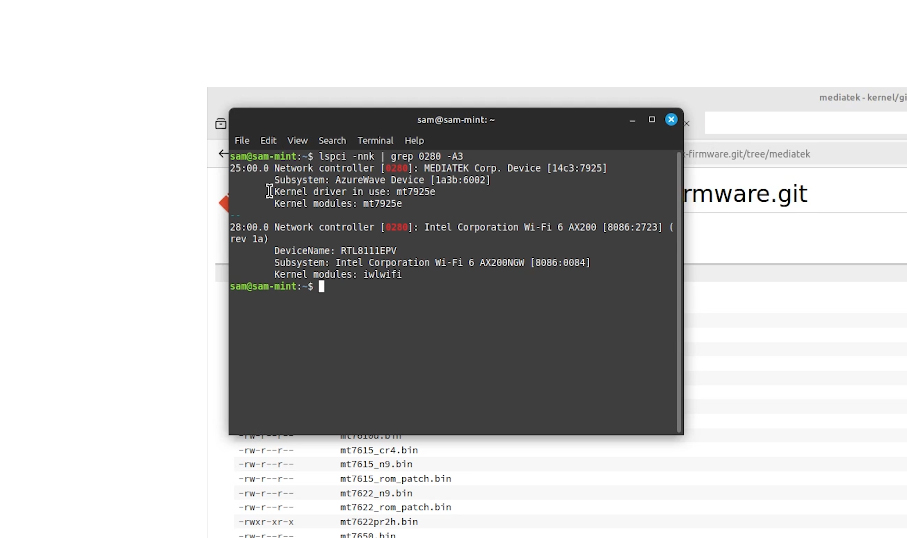
I had two WiFi adapters installed, so I made sure that the Mediatek one was in use. And then I searched for the Ubiquiti 6GHz network. It was nowhere to be found. Excellent. I did try it out with the EnGenius ECW536, but I forgot to screen capture it. Don’t worry though because it performed the same as on the Intel PC, meaning it refused to connect to the 6GHz network even though it detected it. Now let’s move to the Intel PC.
It’s a very old device, but it does work properly and I could install the Mediatek WiFi 7 adapter without many issues. Funny enough, it was actually possible to get a stable Ubuntu using the kernel v 6.11-rc1, not the rc3, that one will still give you mental breakdown. The first thing that I did is to check if the Ubiquiti 6GHz network was visible and it was not once again, so the platform doesn’t matter. If forgot to show that the Mediatek adapter was indeed in use, so there is no doubt about it.
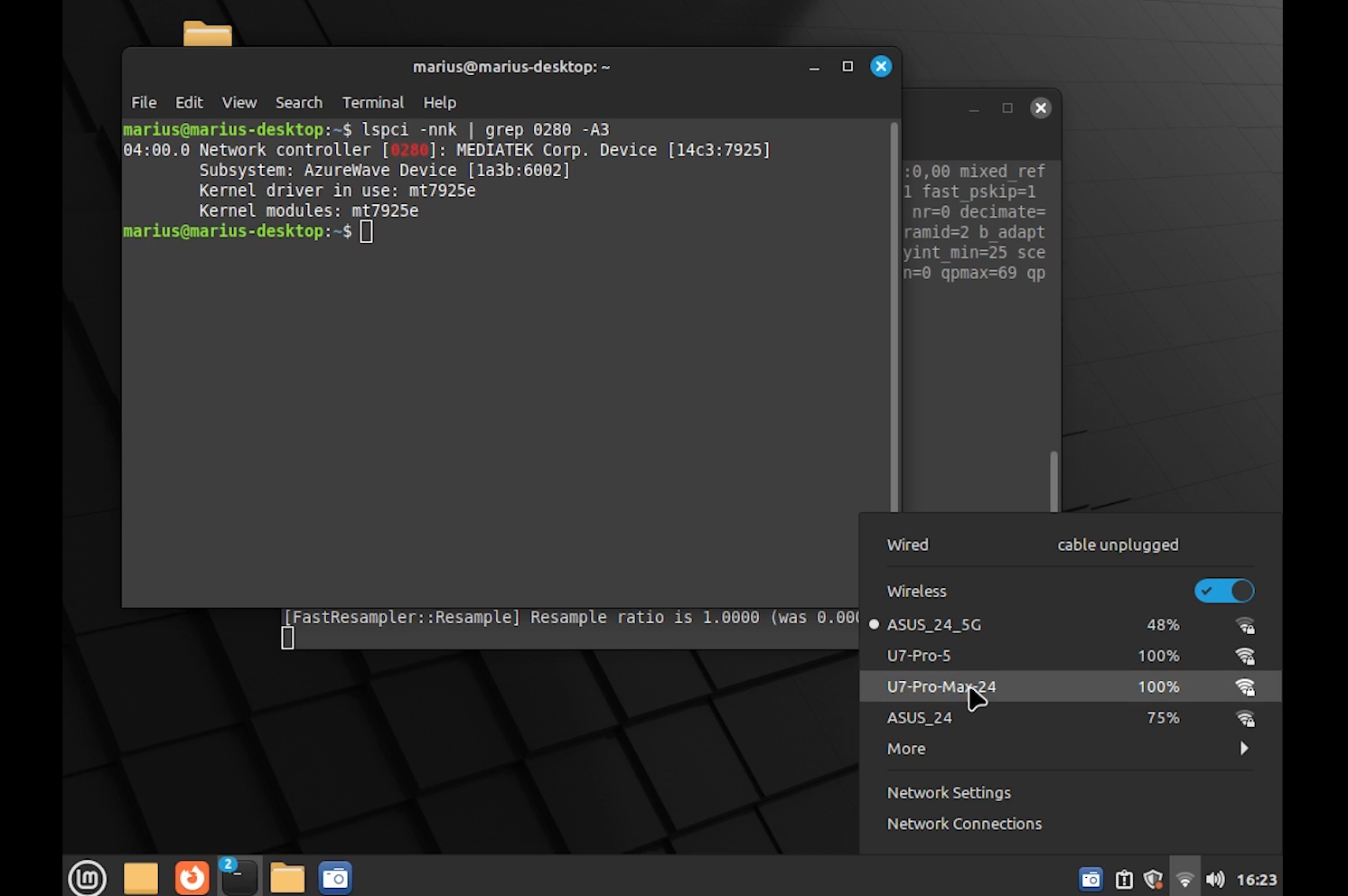
This PC does not have a built-in WiFi adapter, so it’s whatever PCIe device that I add which makes things a bit easier than on the AMD PC. Let’s see if it detects the Engenius 6GHz network and indeed it does, but check out how it fails to connect to it. Anyway, let’s move forward to the Windows 11 still on the Intel PC. Again, I made sure that the Mediatek adapter was the one in use, not that there was another one available, but I always check. And then I connected the client to the EnGenius ECW536 6GHz network.
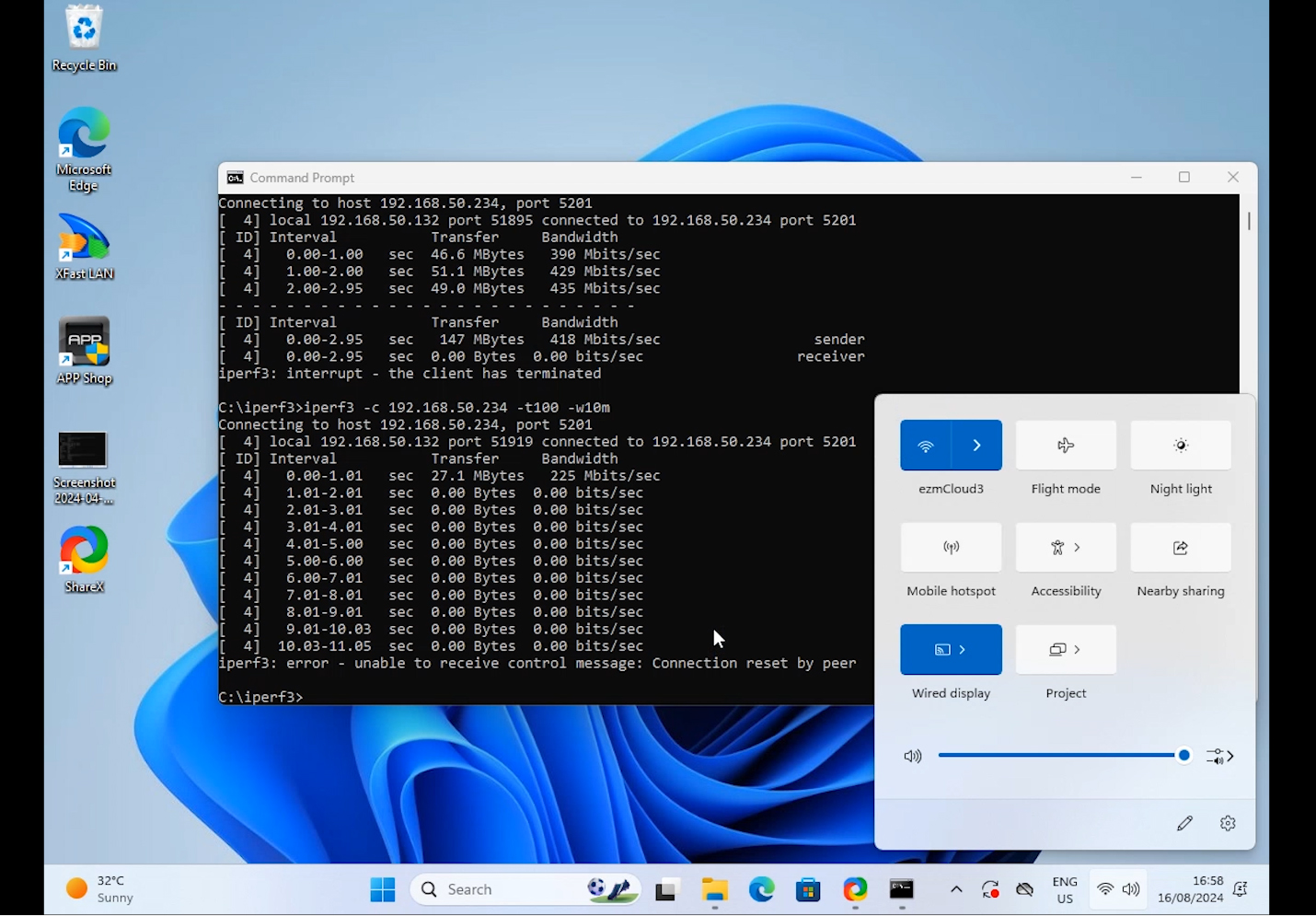
The connection went forward just fine, but running the usual iperf tests would crash the adapter software. As you can see for yourself and no, a reboot did not make a difference. So there you have it, the WiFi 7 PCIe adapters world remains a complete mess, the drivers kind of work, but kind of don’t and new WiFi 7 routers and access points are released every day because why not.
Oh, and the support for MLO is still not here yet, but on the bright side, we may get it properly implemented with the stable versions of the operating systems versions I tested in this article for both Linux and Windows. More testing is needed and I am here to take the beating.

Mark is a graduate in Computer Science, having gathered valuable experience over the years working in IT as a programmer. Mark is also the main tech writer for MBReviews.com, covering not only his passion, the networking devices, but also other cool electronic gadgets that you may find useful for your every day life.
